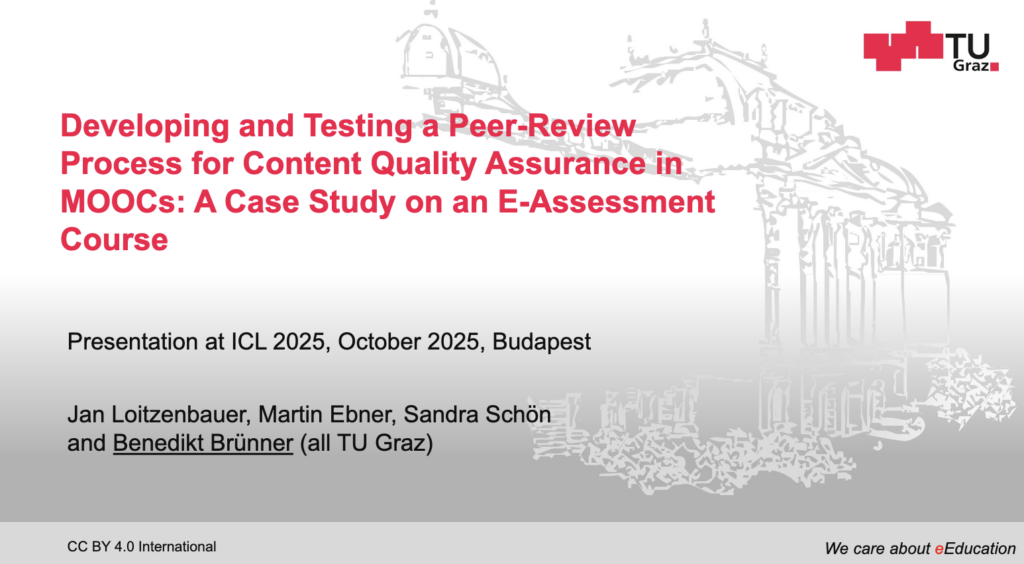At this year’s ICL conference in Budapest, one of our presentations was about „Developing and Testing a Peer-Review Process for Content Quality Assurance in MOOCs: A Case Study on an E-Assessment Course„
This contribution presents the development and testing of a peer-review process for content quality assurance in MOOCs, implemented in the course “E-Assessment – auf Kurs gebracht”. The process was evaluated regarding complexity, duration, collaboration with external reviewers, and learners’ perception. Results show that the procedure can be smoothly integrated into MOOC development. Reviewers contributed beyond expectations by providing materials, didactic advice, and legal-ethical reflections. Learners rated the videos (very) positively (92.7% positive ratings, 100 participants, n=812 answers), especially for structure and coherence. Slightly lower ratings for ‚visual appearance‘ and ‚use of supportive linguistic elements‘ can be explained by the course’s retro video de-sign and the viewers’ understanding of how linguistic devices can be effectively used in educational videos. The study confirms peer review as a feasible and effective quality as-surance approach that supports both collaboration and content improvement.

Find the slides in TU Graz repository.
